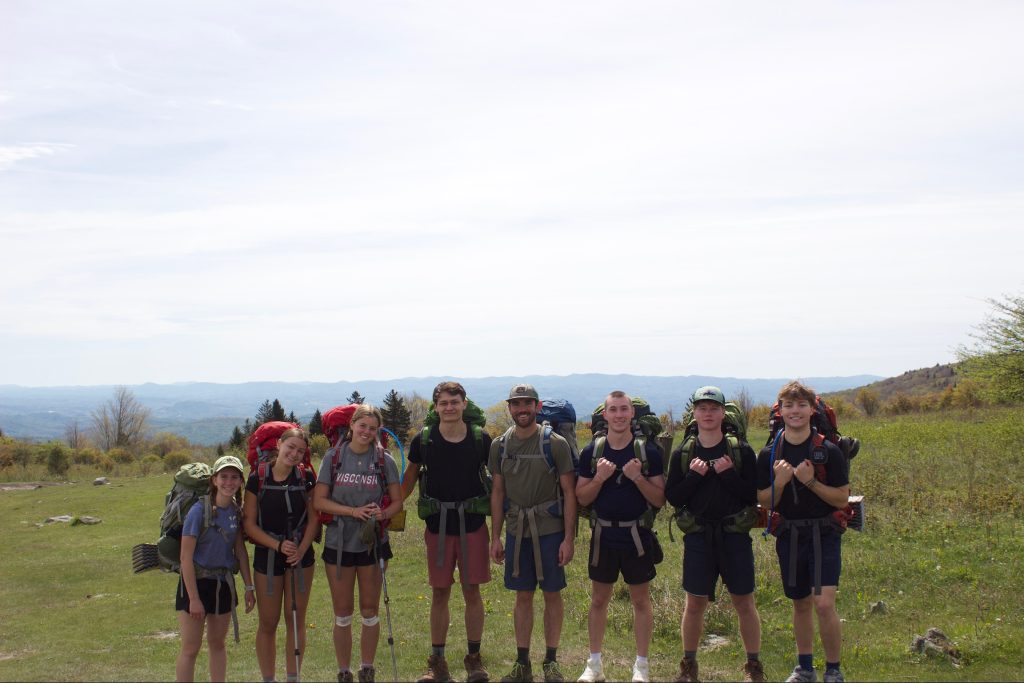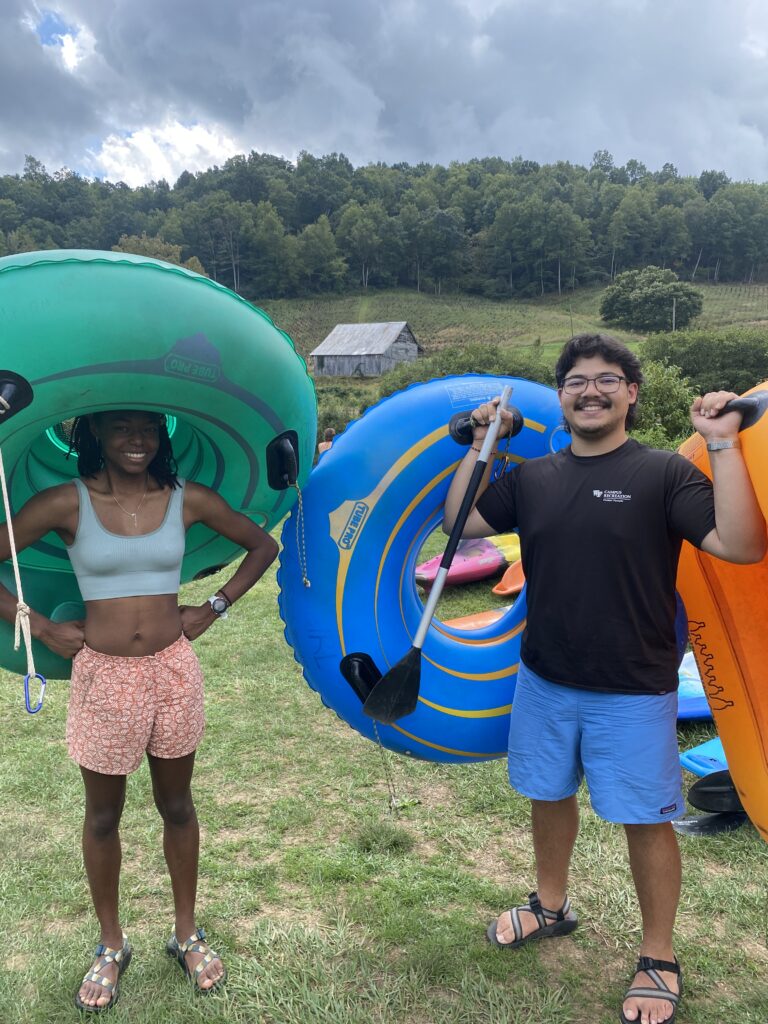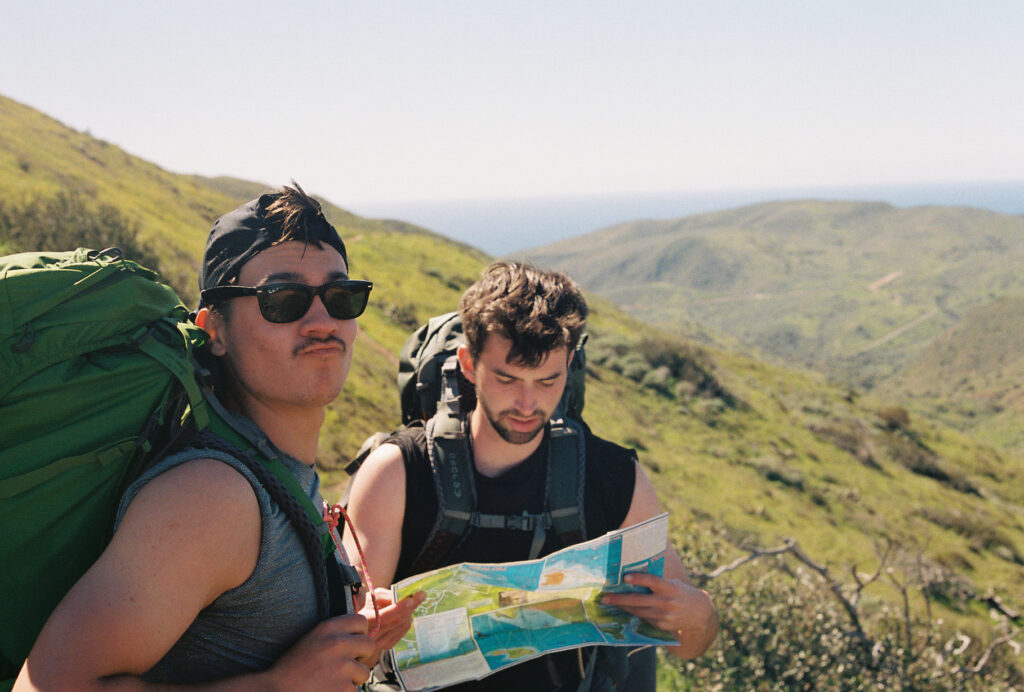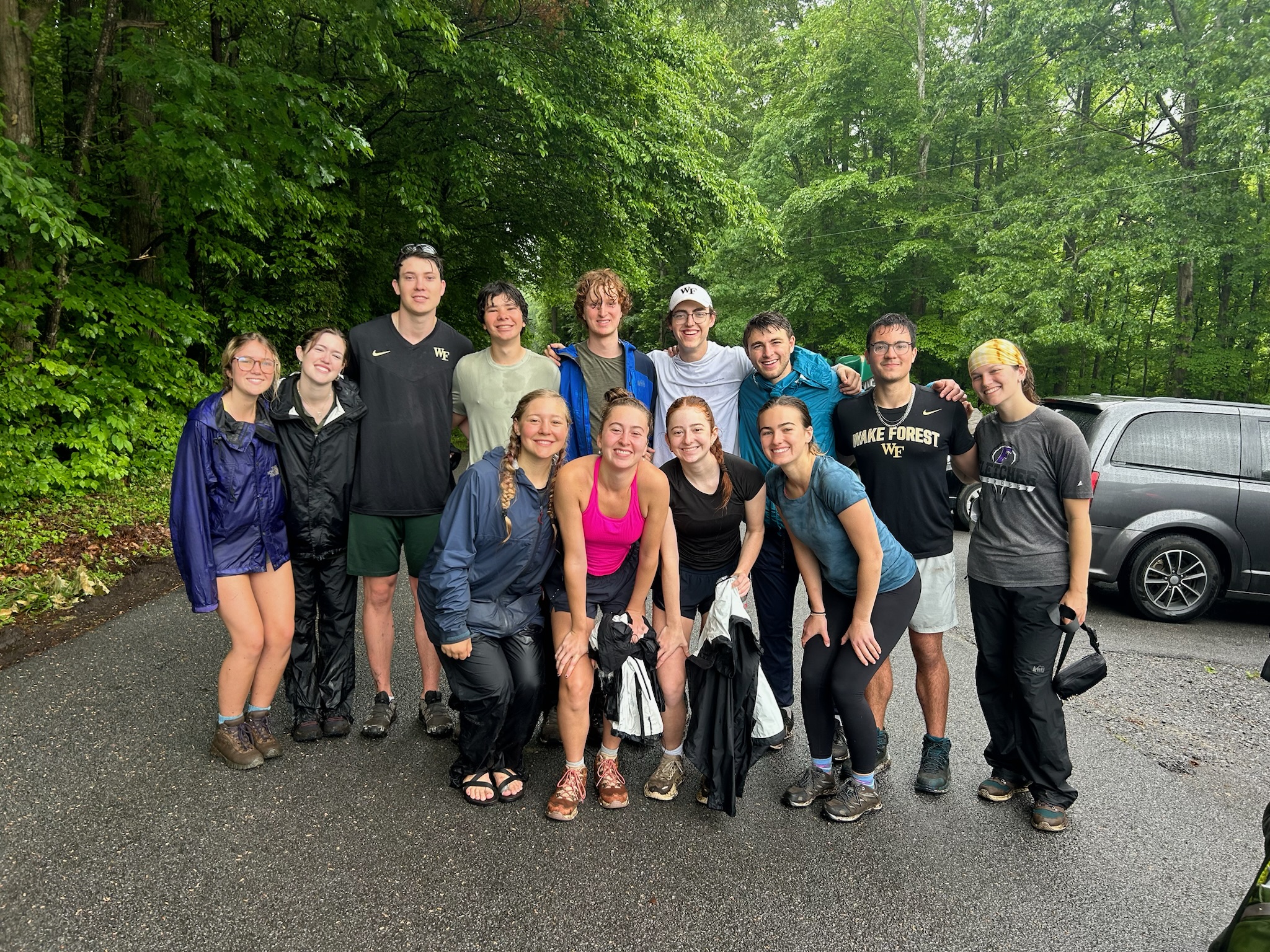Become an OP Leader

Why Become an OP Leader?
Being an OP Leader is more than just a job—it’s a chance to grow, lead, and adventure alongside a community of passionate students. As a leader, you’ll:
- Develop Leadership Skills: Learn how to manage groups, make decisions in the field, and build confidence in your ability to lead.
- Gain Technical Training: Receive training in chosen areas: backpacking, whitewater kayaking, rock climbing, and canoeing.
- Build Community: Join a motivated and supportive team of student leaders who love the outdoors and who will push you to learn and grow.
- Make an Impact: Help fellow students explore new places, make new friends, step outside their comfort zones, and create unforgettable experiences.
- Boost Your Resume: Develop valuable professional skills like: risk management, problem-solving, and group management skills.
Whether you’re looking to share your love for the outdoors, take on new challenges, or prepare for future leadership roles, OP offers a pathway for you to grow while doing what you love.
Becoming an OP Leader
OP Leaders work in several areas of OP: climbing wall, rental center, trip leading, clinic instruction, and community events. OP Leaders typically work 1-2 Climbing Wall and/or Rental Center shifts per week and lead 1-2 trips per semester. Additionally, they have the opportunity to apply for Fall, Winter, and Spring Break Trips, and our Wilderness to Wake pre-orientation program.
OP Leader Roadmap
How to Become an OP Leader
OP offers two main pathways for new leaders based on the type of programs they hope to lead. Please see our FAQs page for more information.
Option 1 – Wilderness to Wake Base Camp/Hike/SUP Assistant Trip Leader
This track culminates in leading our Base Camp program during Wilderness to Wake and day hikes and paddleboard trips during the school year.
Before Applying:
- At least 3 days on OP Trips
- Trip Leading 101 & 102
After Getting Hired
- Shadow at least 2 trips
- Leadership Trip
- Wilderness to Wake Training/Wilderness First Aid
- Optional Complete a Skills Course/Assessment
Option 2 – Wilderness to Wake Expeditions and/or Whitewater/Climb/Backpack/Canoe Assistant Trip Leader
In addition to the leadership opportunities offered in Option 1, this track adds the opportunity in leading the Expedition program during Wilderness to Wake and trips in a chosen skill area: whitewater kayaking, rock climbing, backpacking, or canoeing.
Before Applying
- At least 3 days on OP Trips
- Trip Leading 101 & 102
- Skills Course
After Getting Hired
- Shadow at least 2 trips
- Leadership Trip
- Optional Wilderness to Wake Training/Wilderness First Aid/Leading Base Camp/Expeditions
- Wilderness First Aid (if not completing during Wilderness to Wake Training)
- Skills Assessment



FAQs
What if I cannot afford attending multiple trips and a Skills Course as required to get hired?
OP offers assistance to students who face financial barriers to participating in OP programs. Please complete our financial assistance form.
What if I only want to work at the Climbing Wall or am unsure about leading trips?
Working at the Climbing Wall is a great way to get involved with Outdoor Pursuits and start building your skills. Many leaders begin here before exploring trip leading, but there’s no requirement to do so. You can apply for the Climbing Wall Attendant position. Hiring takes place on a rolling basis as positions become available. Climbing Wall staff may later choose to pursue Trip Leader training if interested.
When can I start working for OP?
After being hired, leaders can start shadowing trips and completing other After Getting Hired opportunities. Leaders begin officially leading trips OP once all After Getting Hired steps are completed.
I missed the Skills Course and/or Trip Leading 101 or 102. What can I do to still apply?
No worries, Outdoor Pursuits offers several Skills Courses throughout the year including during Fall, Winter, and Spring Break as well as other options during the semester. Trip Leading 101 & 102 trainings are offered in both Fall & Spring Semesters. Check out the Training Schedule to find the next opportunity.
What is shadowing?
Shadowing trips allows developing leaders to observe and assist with trip planning, pre-trip meetings, and field leadership alongside current Trip Leaders. Shadows receive feedback on strengths and growth areas. Shadowed trips are offered to OP staff free or at a discounted rate, depending on the trip.
What if I want to develop more than one skill area?
You can absolutely pursue multiple skills areas, simultaneously or separately, by taking Skills Courses in different areas and working towards assessment in both.
What do Basecamp & Expedition Leaders do?
Expedition Leaders run our backpacking trips during Wilderness to Wake. Those interested in leading as an Expedition Leader should pursue Option 2 and complete a Backpacking Skills Course.
When does Outdoor Pursuits hire Wilderness to Wake Leaders?
OP hires leaders for the following summer’s Wilderness to Wake in February/March.
Base Camp Leaders run day trips from our program location in western North Carolina during Wilderness to Wake–OP’s first year pre-orientation program. Those interested in leading Base Camp can pursue either Option 1 or Option 2
What is Trip Leading 101 & 102?
Trip Leading 101 & 102 are 2 – 2 hour workshops that will introduce participants to leadership topics.
In Trip Leading 101, you’ll get hands-on practice with group management and learn how to bring energy to a group so everyone feels welcome and connected. We’ll talk about ways to build community, keep participants engaged, and make sure everyone has a positive experience. You’ll also get a look at the behind-the-scenes work that goes into running safe, successful trips.
In Trip Leading 102, we’ll talk about risk management, focusing on how to notice things before they become problems and keep your group safe without overthinking it. You’ll also learn how to put together an easy, tasty meal plan that works on the trail. To wrap things up, we’ll look at post-trip debriefs, and why they matter.
What Are Skills Assessments?
A Skills Assessment serves as a benchmark for the competencies expected of Trip Leaders within each activity area. While the format varies by discipline, all assessments evaluate three core domains: technical proficiency, risk management, and group facilitation. Participants receive the list of required skills in advance and typically work toward assessment over one or two semesters, depending on their experience and availability.
